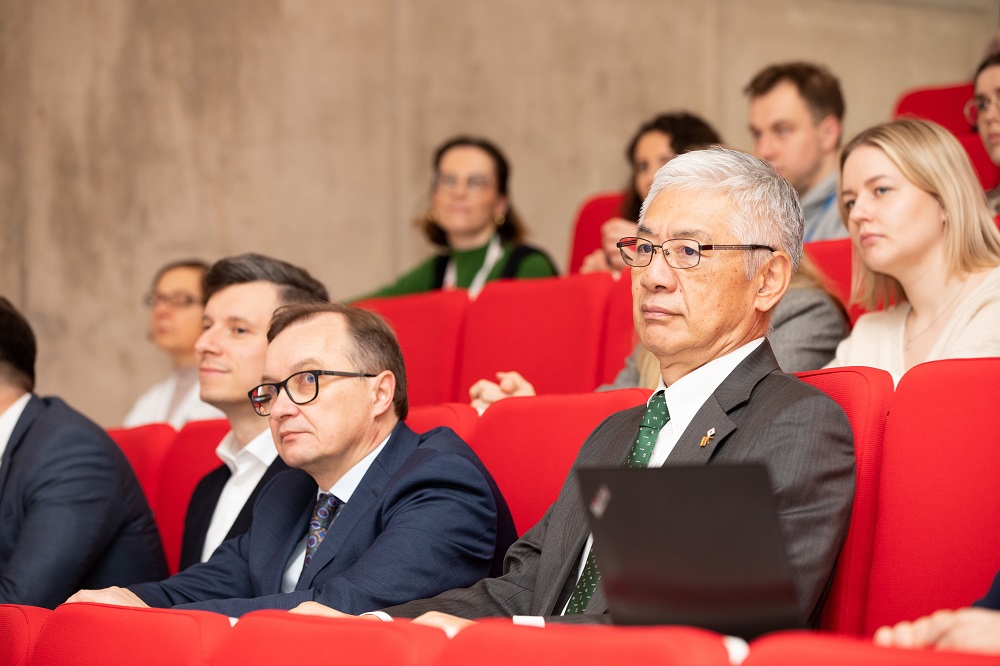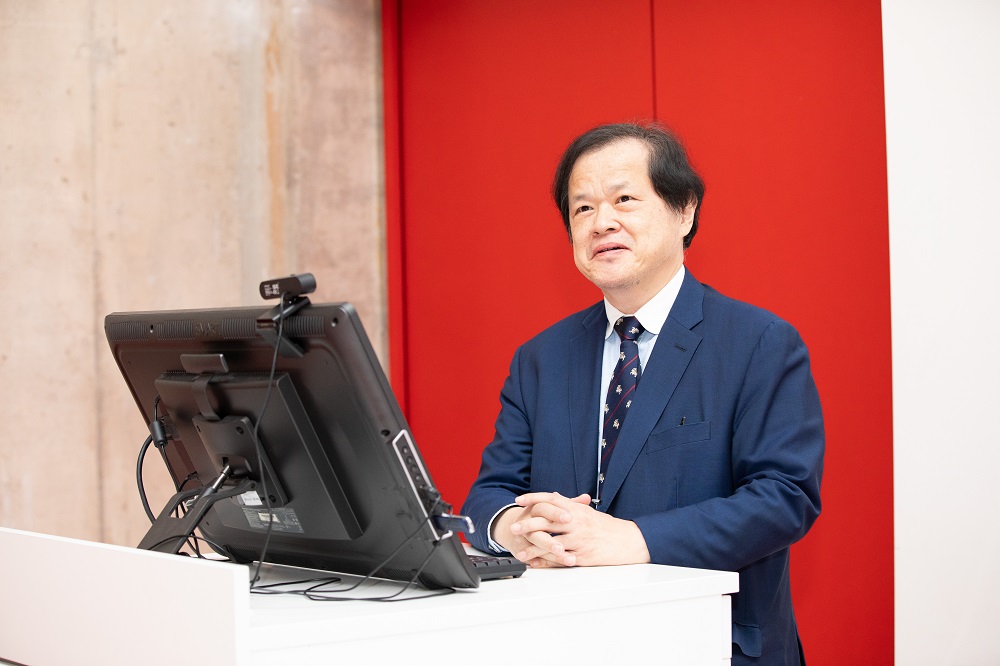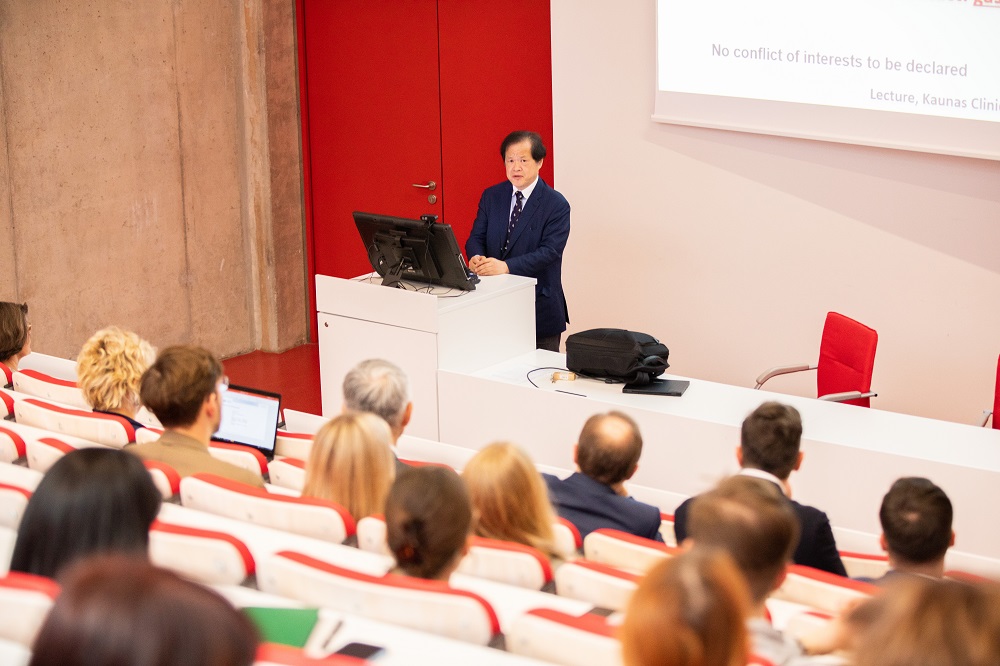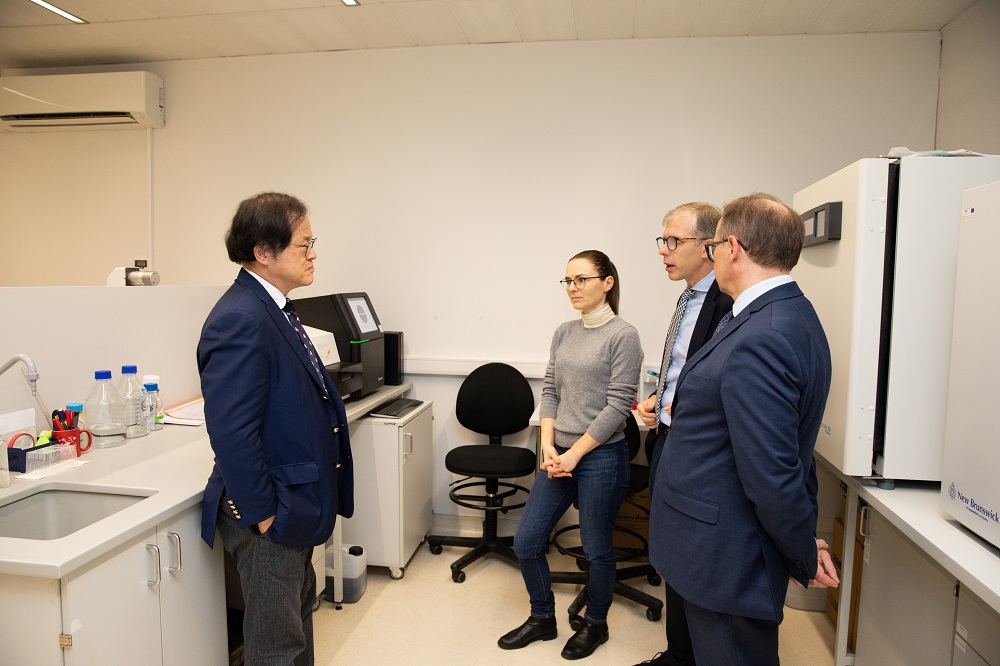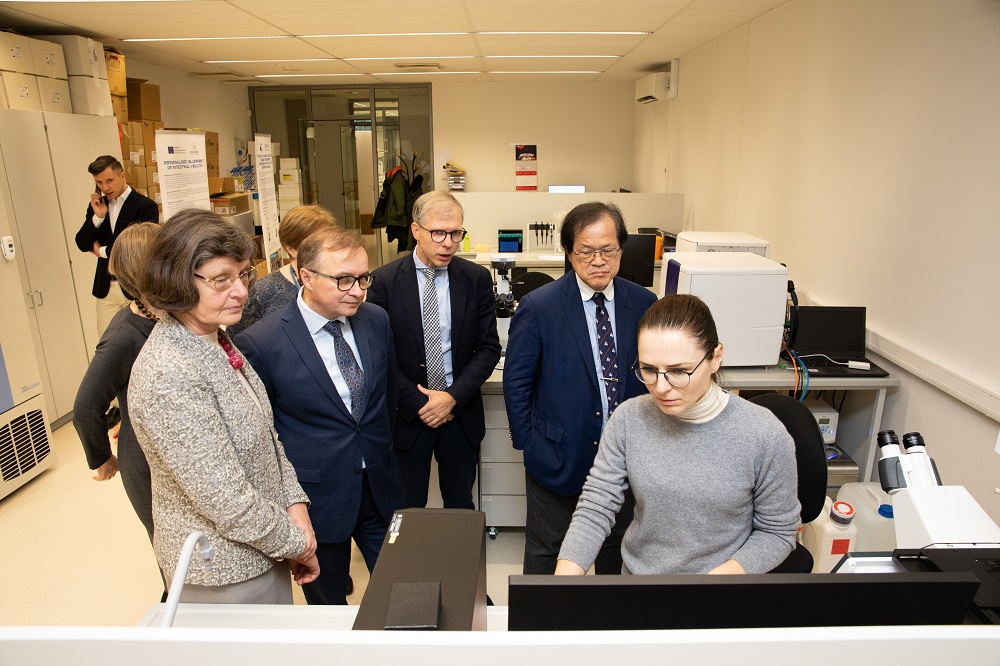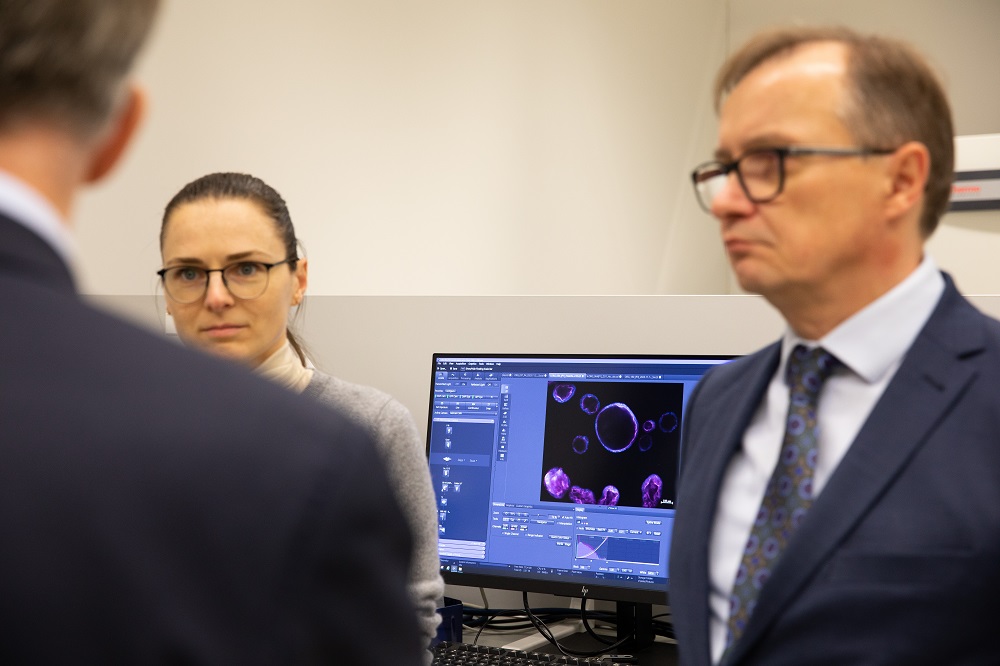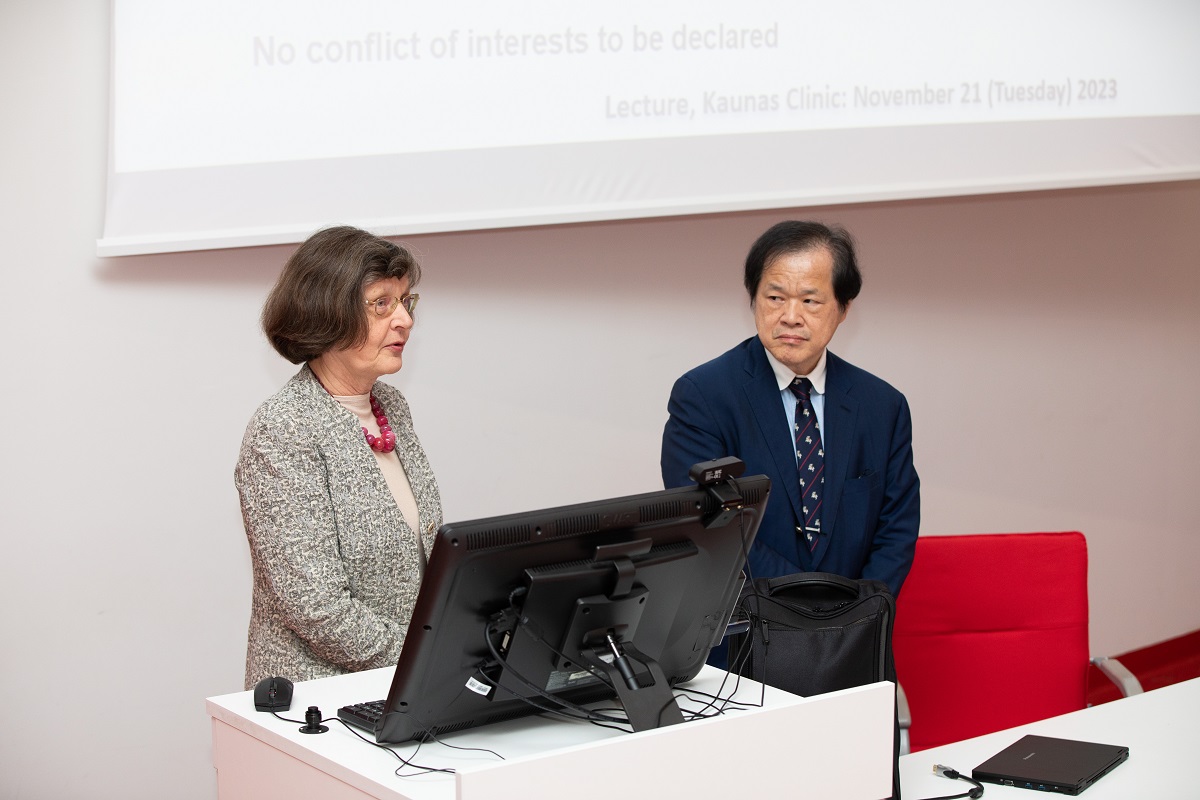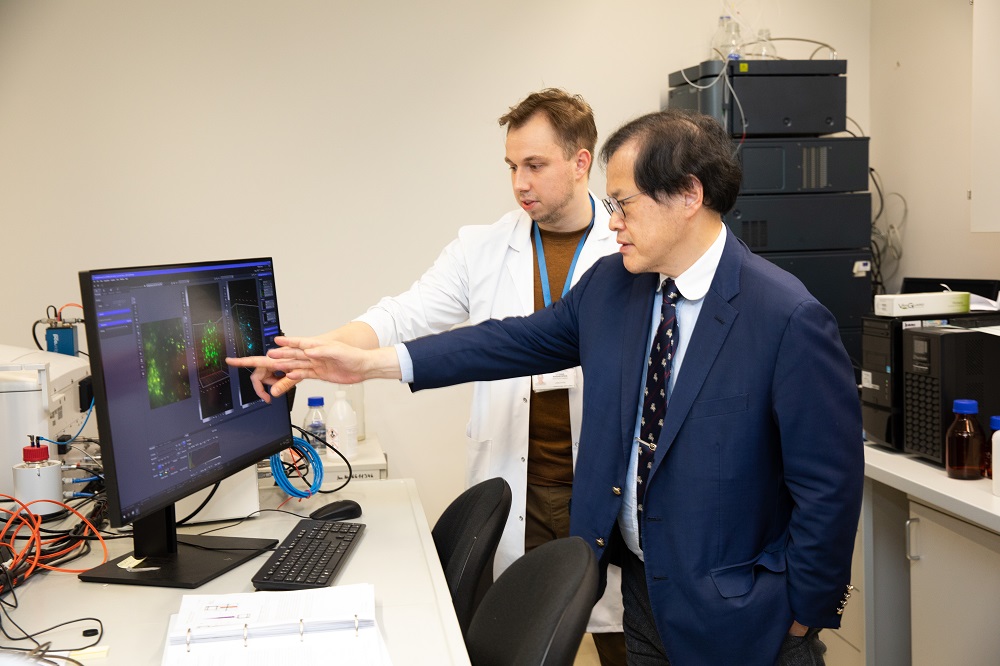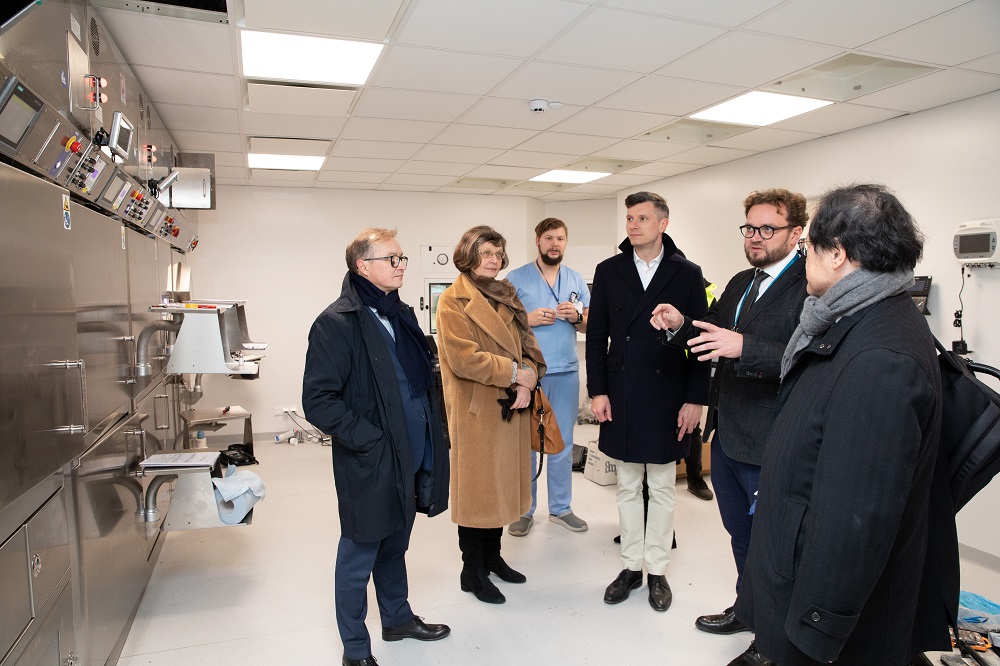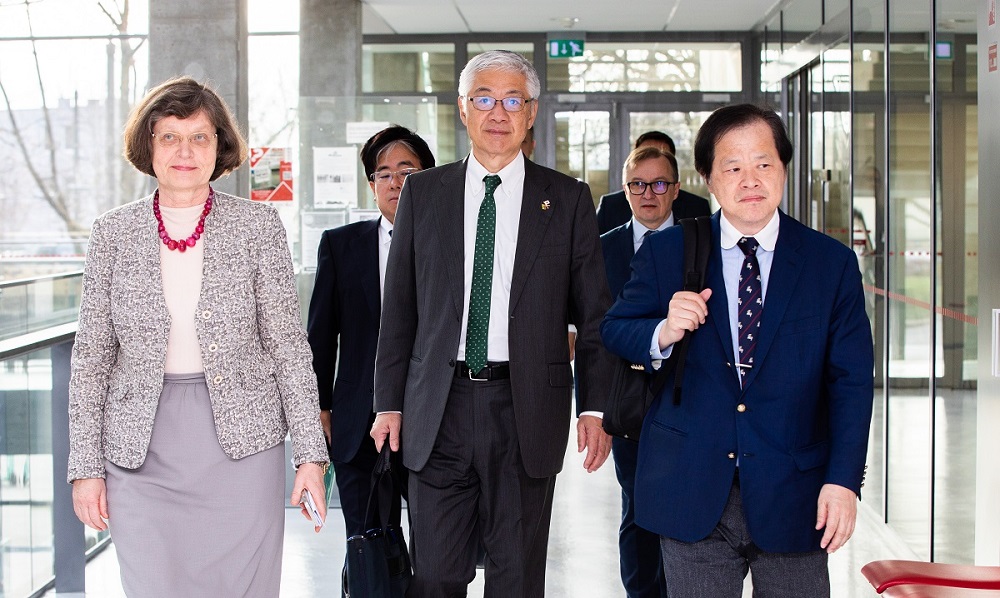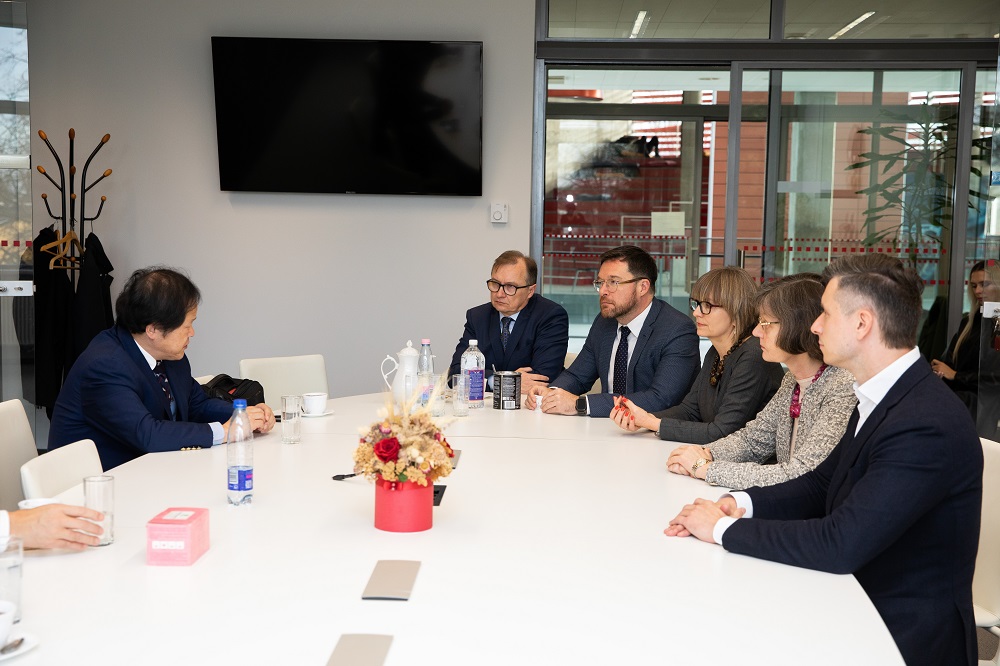Renowned Japanese Professor visits LSMU and Kaunas Clinics: “Don’t Hesitate to Experiment”
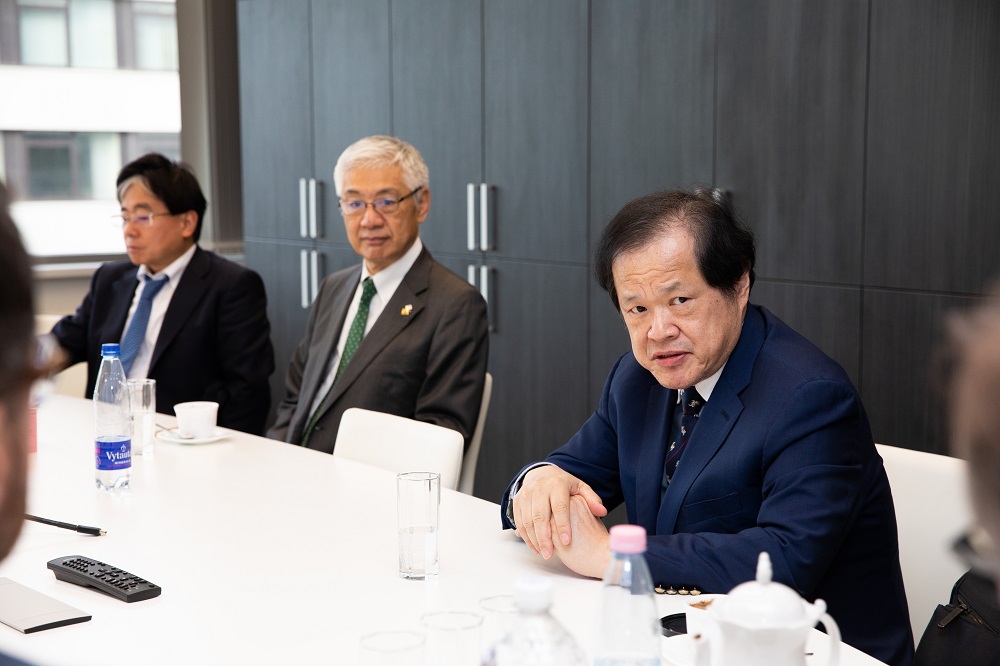
On 21 November, Prof. Makoto Suematsu, a renowned scientist from Japan, visited the Lithuanian University of Health Sciences (LSMU) and Kaunas Clinics (Kauno klinikos). He was accompanied to Kaunas by H.E. Ozaki Tetsu, Ambassador of Japan to Lithuania, and First Secretary Okasaki Hiroshi.
His research interests include gas biology, metabolomics, and imaging of malignant tumour metabolism. He delivered a lecture “Imaging Metabolomics in Humanized Experimental Platforms” to the community of LSMU and Kaunas Clinics, visited the departments of the University and Kaunas Clinics, and showed keen interest in their scientific and clinical activities, innovations, and future prospects.
During his lecture, the Professor shared his experience in the development of laboratory animals, the design of new animal experiments, quality control and metabolomics imaging using humanised experimental platforms, and talked about different research methodologies he uses in his scientific work.
“Professor Makoto Suematsu is a truly distinguished guest. We are very delighted to have welcomed him not only because he is a renowned, internationally recognised scientist, but also because he is a good friend of our country and the University,” said Prof. Habil. Dr. Vaiva Lesauskaitė, Vice-Rector for Research at LSMU.
Emphasis on the Need for Experimental Research
Regarding the outlook for experimental research, Professor Suematsu emphasised that the need for animal testing technology will persist for a considerable period.
“In the United States, animal testing is no longer a prerequisite in pre-clinical trials. But the big question is how can you develop a new drug without using experimental animals? In my experience, humanised liver mice can be very useful for pre-clinical drug trials,” said Prof. Suematsu.
The U.S has banned the use of chimpanzees for this type of research, but on the other hand, more and more mice are being used for research in this country. According to the Professor, such studies are excellent for monitoring brain function and the results are very important for human brain research. “We still need this technology, this method. Of course, it is very important to comply with the principles of medical ethics,” the Professor noted during his lecture.
Professor M. Suematsu noted the enthusiasm of researchers from Lithuania, particularly those in Kaunas, in terms of collaboration in the area of rare disease diagnostics. “A few years ago, I was trying to get funding from the Japanese Agency for Medical Research and Development (AMED) for data sharing in the clinical field to help patients with undiagnosed rare diseases. Lithuania was the first country to support this project. At the time, data sharing seemed to be a very complex issue for researchers. Usually, researchers, including myself, try to collect data without disclosing it to the outside world, but in the field of rare disease diagnostics, data must be open, otherwise, we cannot save patients,” said Prof. Suematsu.
According to Prof. Renaldas Jurkevičius, Director General of Kaunas Clinics, it was thanks to Prof. Suematsu’s mediation that the specialists at Kaunas Clinics had the opportunity to send the data of fifteen patients to Japan, where comprehensive genetic tests of the entire exome were performed. As many as 13 of the patients were diagnosed or suspected of having rare genetic diseases.
“Once a professor who was my mentor asked me to do something new for me. That is always exciting, especially for a young researcher. He said: “Do not think – just act”. I found it very challenging. At that time, I had to work out the difference between a good oxygen molecule and a bad one. I found it very difficult, but I tried to do it with real-time imaging using a microscope and I succeeded,” Professor Suematsu shared his memories. He encouraged the young researchers not to be afraid to experiment in their scientific endeavours, to try out different research methods, and shared his personal story.
Collaboration Opening New Prospects for Disease Detection and Treatment
After the lecture, Prof. M. Suematsu visited the LSMU research laboratories and Kaunas Clinics, where he discussed the ongoing research, and got acquainted with the activities of the departments, innovations being implemented there as well as future prospects.
“We are very happy to welcome Professor Makoto Suematsu to Kaunas Clinics for the first time. His visit is another important step in our long-standing cooperation, which is based on deeply rooted traditions and mutual trust. Genetics is a special area of our cooperation, which opens up new prospects for the detection and treatment of diseases,” said Prof. Renaldas Jurkevičius, Director General of Kaunas Clinics.
Japan is renowned for its pioneering achievements in genetic research, personalised medicine and biobanking, and Professor Suematsu took particular interest in the new Human Biological Resources Centre (Biobank), which is almost completed on the Kaunas Clinics campus, and its prospects. “Looking forward to future projects, we are convinced that our cooperation with Professor Suematsu will not only allow us to fully exploit the potential of the biobank, but also to strengthen our position in the international biomedical community,” said Prof. R. Jurkevičius.
During his visit, Prof. Suematsu also visited the Department of Genetics and Molecular Medicine of Kaunas Clinics, where he took an interest in the scope and development of genetic research, and toured the Nuclear Medicine Research Centre, where the only cyclotron in Lithuania will soon be put into operation.
Japan and Lithuania have been collaborating in the field of biomedical sciences for several years. In 2017, a Memorandum of Understanding was signed between the Ministry of Health of Lithuania and the Japan Agency for Medical Research and Development, encouraging the countries to share best practices and collaborate in rare disease research, scientific and clinical research, and to pursue common goals in oncology and other biomedical fields. In 2018, Prof. M. Suematsu was awarded the Cross of Officer of the Order For Merits to Lithuania for his active involvement in promoting Lithuanian-Japanese cooperation in the field of medicine and for the promotion of the name of Lithuania worldwide.
Prof. Makoto Suematsu is the founder and long-time head of the Japan Medical Research and Development Agency, which has been in close contact with the Lithuanian University of Health Sciences and Kaunas Clinics for many years. He is currently Head of the Central Institute for Experimental Animal Research, Professor Emeritus at Keio University, and a member of the Board of the Suntory Life Sciences Foundation. His research interests include gas biology, metabolomics, physiology of microcirculation, metabolic imaging of malignancies, genetics, rare disease diagnostics, and oncology.

